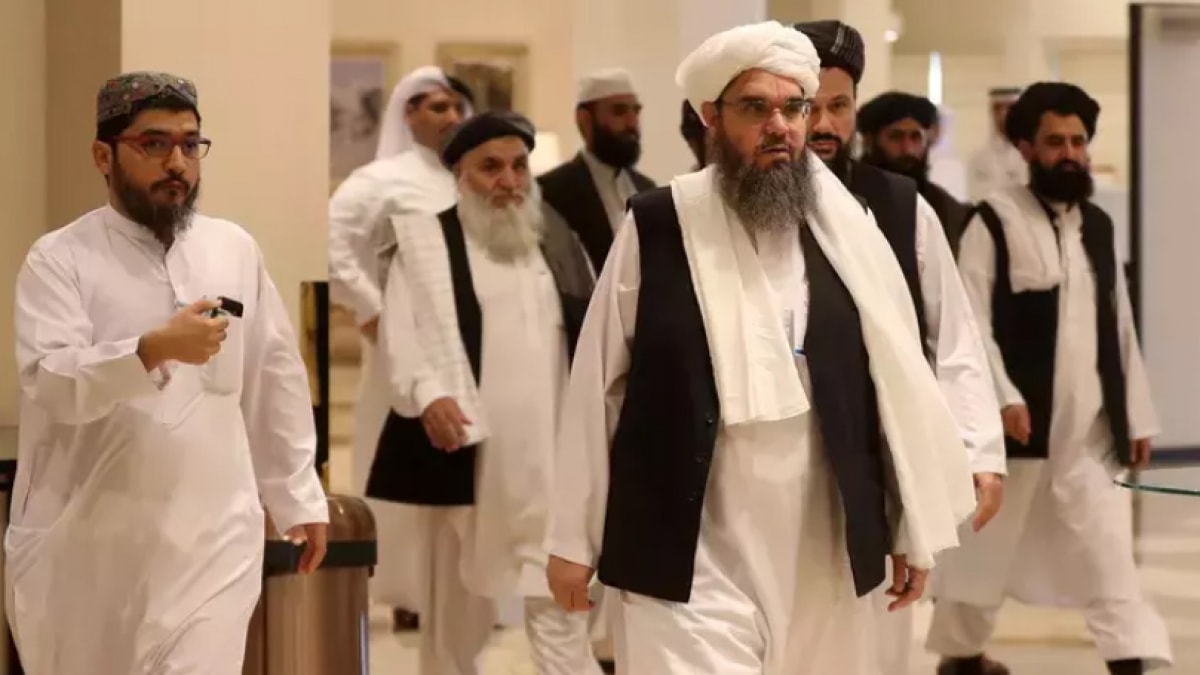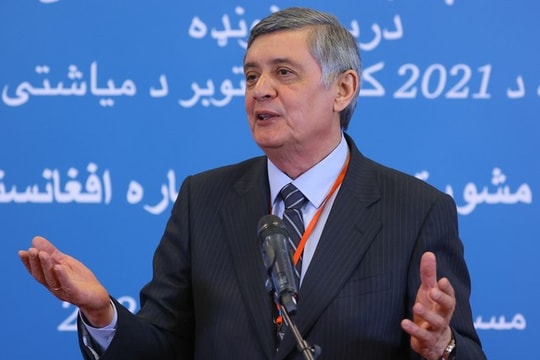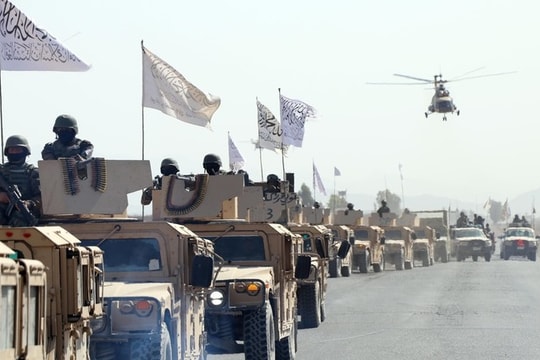Who will become the leader in Afghanistan when the Taliban takes power?
Things are different now compared to when the Taliban took power in Afghanistan in 1996. The Taliban's power is now not concentrated in just one person. In addition to the supreme leader, this force has many other leaders with their own strengths and strategies.
When the Taliban took power in Afghanistan in 1996, there was no question about what form of government they intended to form and who would run the country. Mullah Mohammed Omar, who had led the Taliban for two years, became Afghanistan's top leader.
Kabul was in ruins, its people living in poverty and fear. There was little economic activity, no telephones. Public transport consisted of old Russian cars or 1970s buses used in Germany. The Taliban could impose whatever they wanted.
 |
Things are different now. Since the Taliban regime was overthrown by a US-led coalition after the attacks of September 11, 2001, Kabul, Afghanistan’s capital, has become a bustling, crowded metropolis of five million people, with traffic jams a familiar sight. The rest of the country has changed a lot, too. Afghanistan’s new leader will face a daunting and complex task.
Who will be the head of the new government?
The most likely candidate is Haibatullah Akhundzada, a 60-year-old Islamic legal scholar who became the Taliban’s supreme leader after his predecessor Akhtar Mansour was killed in a US drone strike near the Afghanistan-Pakistan border in 2016.
Akhunzada grew up in Panjwai, a district on the outskirts of Kandahar. Like most senior Taliban leaders, Mr. Akhunzada is Pashtun, Afghanistan's largest ethnic group.
In the 1980s, Mr. Akhunzada participated in anti-Soviet campaigns alongside religious students and young clerics who later became the core force of the Taliban. He studied at religious schools in Afghanistan and neighboring Pakistan and was the chief religious “adviser” to leader Mullah Omar.
In recent decades, Mr. Akhunzada has been the Taliban’s top religious judge, deciding on thorny issues such as the legality of suicide attacks and the rightness of fighting the Islamic State (IS) as the terrorist group seeks to establish a presence in Afghanistan. Mr. Akhunzada also teaches the most complex and authoritative religious texts in religious schools.
Known for his austere personality, Akhunzada was the most likely candidate when the Taliban's Supreme Leadership Council nominated him as the group's supreme leader in 2016. Akhunzada's ethnic background, reputation as a scholar and widely respected erudition are his advantages.
According to analysts, Mr. Akhunzada has a more pragmatic view than many think, allowing negotiations with the United States and encouraging lower-level Taliban members to seek to win over the community with good management and discipline skills.
Since the Taliban have long disdained democracy, they are likely to scrap Afghanistan’s 2004 constitution and declare an Islamic “emir” in place of the current Islamic republic, meaning that Akhunzada, the “leader of the faithful,” would automatically assume the top position.
However, the Taliban's power is not currently concentrated in one person, and the supreme leader himself will not enjoy absolute obedience.
The leadership council – also known as the Quetta Shura after the city in western Pakistan where many of the Taliban’s top leaders live – is very powerful. While there is a high degree of ideological unity among its leaders, the Taliban also has powerful deputies, their own strategic priorities, their own support networks, and their own overseas connections and ambitions.
Potential Taliban Leaders
Some Taliban leaders now want international recognition, while others prioritize strict restrictions and control over the population. Many of them are members of the ruling council and head “committees” that make decisions and implement policies in many areas.
Mr Akhunzada now has three subordinates, each with different strengths. These factors could determine their eventual positions in the Taliban government, possibly as prime minister or similar roles.
The best known is Mullah Abdul Ghani Baradar, in his 50s.
Baradar was one of the Taliban’s earliest members and now heads the group’s political office. He was arrested in Karachi, Pakistan, in 2010 and spent eight years in prison. He was later released, possibly at the request of the United States, seeking support for the Taliban’s negotiations with Washington.
Mr. Baradar has acted as an ambassador for the Taliban, holding direct meetings with officials from regional powers such as Pakistan and China, and leaders of other Islamist movements. He has also spoken by phone with US President Donald Trump.
The second figure is Mullah Mohammad Yaqoob, son of Mullah Omar, who currently runs the Taliban's “military committee” and is considered the chief architect of the campaign to bring the group back to power.
According to a Taliban commander, Mansour Yaqoob, believed to be in his 30s, was proposed to be the Taliban leader five years ago but decided to support Mr. Akhundzada because he felt he lacked battlefield experience and was too young.
The third and perhaps most influential figure - the one that Western intelligence agencies are most concerned about.
 |
| Taliban soldiers at the Afghan presidential palace in Kabul. Photo: AP - Zabi Karimi |
Sirajuddin Haqqani is the son of the late prominent mujahideen commander Jalaluddin Haqqani, who fought against the Soviet Union and built a powerful force of fighters across the Pakistan-Afghanistan border. The Haqqani network has supported the Taliban since 2001 and is believed to have carried out dozens of deadly attacks in Kabul and elsewhere.
According to some sources, Haqqani, now in his 40s, is in charge of overseeing the finances and military of the Taliban in Pakistan. In addition, Mr. Haqqani has close ties with senior figures in al-Qaida as well as Pakistani intelligence.
Sirajuddin Haqqani is on the FBI’s Most Wanted list and is described as “armed and dangerous.” Sirajuddin Haqqani is also the author of the 2020 New York Times article “What We, the Taliban, Want.”
All three are expected to play important roles in whatever form the new government takes in Kabul, but few can predict what the trio and Mr Akhunzada will do with the power they now wield.
“They are experienced people, having been through decades of war. They are very cautious and discreet,” said an anonymous Afghan observer./.



